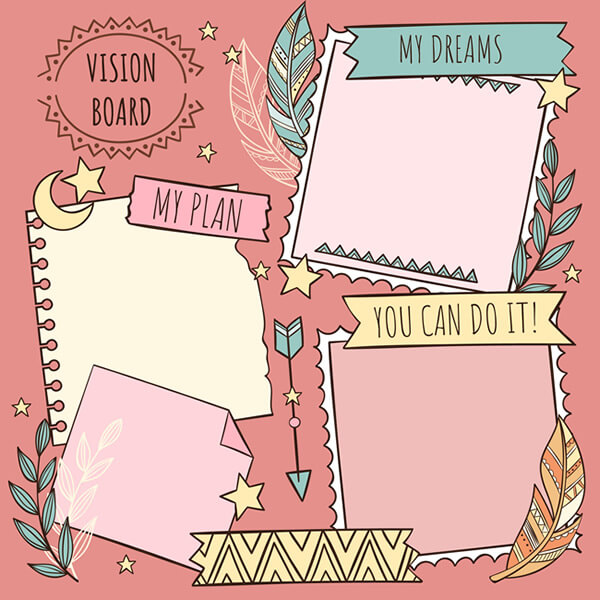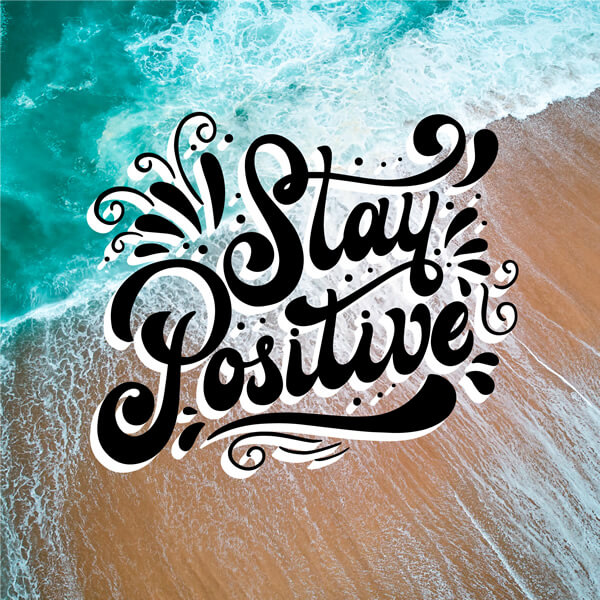If You Want To Live A Better 2023, Change Your Mindset
There are several reasons why New Year’s Resolutions fail – the resolutions are too vague or grand, the approach lacks planning, structure and accountability, and essential things are missing (e.g., motivation, time, resources). So, what can you do differently this year to maximize your success? I recommend that you try focusing more on how you think about yourself in relation to a given goal over the actual desired results you’re wanting to achieve. If you really want to change something meaningful about yourself, the best place to start is with creating a winning mindset. Being more consciously aware of your thought processes in an area you’d like to improve on can in turn lead to improved feelings and more productive behaviors and outcomes.
Here are a few tips to consider when changing your mindset for a better 2023:
Make sure you’re ready to change. Sure, you might say to others that you want to lose 20 pounds, or drink less, or have greater work life and personal life balance, etc., but if you’re not ready to change, your efforts will also likely not last. Research has consistently shown that alcoholics, for example, maintain absolute sobriety the longest only after they’ve hit a personal bottom. It doesn’t matter how many close friends or family members tell an alcoholic that they have a drinking problem, and until that individual realizes that fully, sobriety often remains elusive or out of reach. You will be in a great place for change to happen when you are both intellectually (i.e. you know what you want) ready and emotionally (i.e. you feel strongly about what you want) ready to make the changes you want to make.
Identify and reframe your limiting beliefs toward the positive. Once you’ve fully accepted and prioritized what it is you’d like to change about yourself, identify your limiting beliefs. A limiting belief is a thought that restricts you from achieving your goals, and it has very real negative consequences. An individual’s limiting beliefs are largely unconscious and develop out of life experiences and a life story. The guy who believes that he’s undeserving of a great relationship or job didn’t just wake up one day thinking, “I’d like to ask that woman out, but she’ll never say yes” or “I’d love to apply to that job, but I’ll never get it.” Moments across that person’s life created a false and negative internal narrative that then stops him from feeling hopeful about a relationship or better career. Inaction, avoidance, and withdrawal cement his dreaded but expected negative outcome, and the narrative plays on and repeats when new opportunities present for him. p
One way to challenge your limiting beliefs is to write down the things you want to change about yourself and the reasons you think you can’t. After identifying your limiting beliefs, acknowledge that they’re just beliefs. Challenge your beliefs and recognize the negative consequences those beliefs cause you. And reframe your thinking to adopt a new belief that you can begin to put into practice by using positive self-talk.
Research studies have repeatedly shown that positive self-talk serves to decrease stress and increase self-esteem and overall wellness. Individuals with anxiety, depression, and other forms of mental health struggles (e.g., eating disorders and body image problems), have demonstrated significant symptom reduction as a result of positive self-talk.
Cultivate an attitude of gratitude. Positive Psychology research studies have shown that gratitude is strongly associated with happiness and that increased levels of happiness lead to motivation, commitment and change when it comes to achieving goals. And when it comes to cultivating gratitude in your life, I recommend that you put effort into focusing on the good; by noticing, appreciating, and seeking out the good things in our life, you will start to think more positively about all that you have. You might benefit from keeping a daily gratitude journal or from mentally reminding yourself of the various things you have to be grateful for. For example, before going to bed at night, think about two things you’re grateful for from your day and allow yourself to feel good about those things. Abraham Lincoln once said, “Most folks are about as happy as they make up their minds to be.”
Give back. Human beings are hard wired when it comes to pleasure, and research has shown that being generous and giving to others contributes to happiness and even success. Generous people focus on the good of others over the good for themselves, and thus they will do what they can to work harder to accomplish their goals. Consider the character, Ebenezer Scrooge, from “A Christmas Carol. Scrooge’s reframing of his life (in relation to others) led to increased happiness, which then buttressed his altruistic drive to give back and help others. Everyone, including Scrooge, benefited from his generosity, and that led to the betterment and success of all involved.
This holiday season is a wonderful time to give to others, and like Scrooge, your generosity could pay back in dividends and could help you to feel better about yourself and the changes you want to make. From volunteering your time or donating money, to partaking in kind and selfless acts (e.g., leaving a 5 Star Google review for a business you like, helping a neighbor shovel out some snow, etc.), giving is motivating, and I encourage you to embrace it.
Visualize success. Visualization is a cognitive strategy that involves an individual using their imagination to change, achieve, accomplish, or obtain something desired and important. By mentally rehearsing an outcome, you can center yourself with positive thinking and relaxation toward whatever it is you are striving to achieve. As a practice, visualization has been around for generations, and it is used by many cultures. Olympians, professional athletes, celebrities, and many others who have struggled to achieve, have been helped by it. ‘
A Vision Board is an easy and effective way to practice visualization. You will need a cork board to start. Then, place several pictures or ideas for change on the board; ideally your ideas will include short- or long-term goals. Google Images is a great place to find what you might be looking for, and ideas abound. A printout of a report card with all “A’s,” a printout of a baby if you are trying to conceive, a printout of someone close to your age and in shape or exercising, a personal check with a monetary number on it to represent your retirement goal, a printout of a lake house, a printout of a happy older couple walking down the beach, a printout of a large family at a holiday gathering – these are just a few ideas that may matter to someone as they visualize their success. Once the Vision Board is up, you will want to place it somewhere it will be seen (i.e. your bathroom or closet). And Vision Boards aren’t static. After you achieve a goal, you can take it down and put up a new one. Research has consistently shown that visualization increases positive thinking and change, so it’s a good bet that it will help you if you give it a try. What successes to you visualize for yourself this year?
So, regardless of your specific goals or resolutions, remember that achieving them is more mental than you think. Here’s to getting yourself into a winning mindset for positive and successful change to follow in 2023!






![window.dataLayer = window.dataLayer || []; function gtag(){dataLayer.push(arguments);} gtag('js', new Date()); gtag('config', 'G-5V1MFDKDBY'); New Year Resolutions](https://www.ashburnpsych.com/wp-content/uploads/2022/12/new-year-resolution-5.jpg)

Michael Oberschneider, Psy.D. “Dr. Mike” is a clinical psychologist in private practice.
He can be reached at 703-723-2999, and is located at 44095 Pipeline Plaza, Suite 240, Ashburn.
